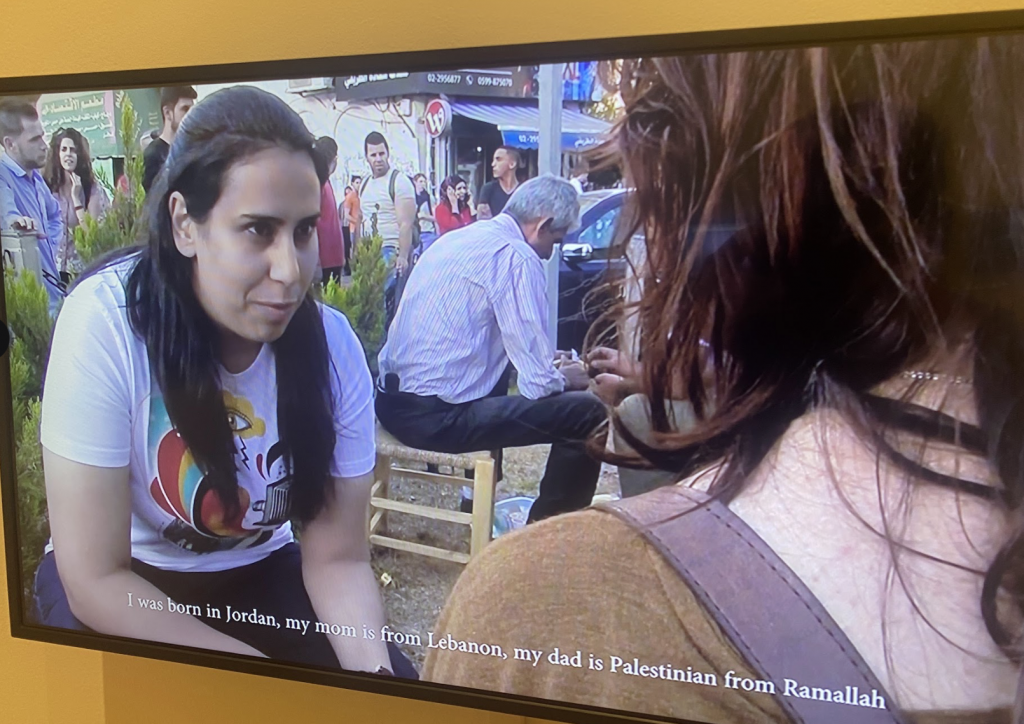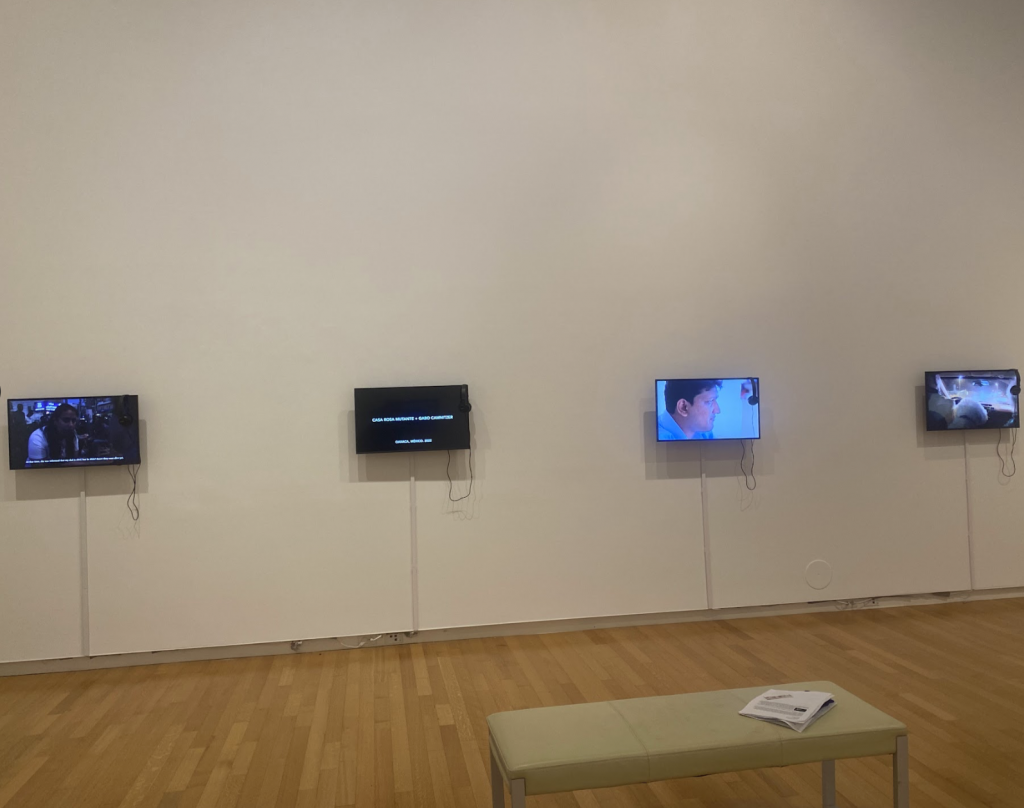By Jamie Nguyen ’25
“Dialogue” and “conversation” has been, is, and very much will be, defining words that we would see in our world today; more so in the world that we are currently inhabiting, with increasing polarization and a myriad of conflicts, both physical, political, and philosophical (and especially with the current conflicts in the Middle East, Congo, and Ukraine, to name a few).
Traditionally, the art world has been one of the strongest platforms for the initiation, maintenance, and inclusion of conversations and dialogues. This tradition continues within Conversations, the latest exhibition currently on display in Goucher’s very own Silber Art Gallery which opened on February 8th of this year. This exhibition also marks the curatorial debut of Janna Dyk, the new Director and Curator of the Goucher Art Galleries, who joined Goucher in the Fall of 2023. The exhibition is supported in part by grants from the Maryland State Arts Council and the Baltimore County Arts Council.

A strength of this exhibition is the diversity of artists featured: featuring works by artists such as Mirna Bamieh, Gabriela Vainsencher, Sunita Prasad, Katz Tapper, and Kyeoung eun Kang, Conversations made an effort to approach and (re)interpret the concept of dialogue, especially in the context of contemporary art. This attempt is highlighted through the artists’ multiple methods of engagement in the notion of dialogue, from a face-to-face method (Mirna Bamieh), through prompted speeches (Bang Geul Han), voicemails (Ellie Lobovits) and tele-prompted testimonies (Sunita Prasad).
Using a largely united medium – almost all artworks featured are single-channel videos, with Han Bang-geul’s “Conversation” and Kyeoung eun Kang’s “Family Poem I” being rare exceptions – the diversity of expressions and topics is definitively highlighted: from the experience of being (up)rooted and figuring out one’s sense of belonging with the backdrop of al-Manarah/Ramallah (West Bank, Occupied Palestinian Territories), to witnessing the rise of fascism and the climate catastrophe, to highlighting the labor (and laborers) that are usually hidden in the imagination the general public in the U.S. Within this diversity of topics, the underlying humanity of all subjects, shown through even the most mundane of tasks – saying “mi amor” to the artist, peeling potatoes, leaving voice notes and voicemails – is effectively highlighted.
Viewers will expect to find themselves being, either voluntarily or implicitly required, to engage with the exhibits with more than one sense – hearing the words, reading the captions, contextualizing the responses, ideas, and testimonies presented through the exhibits themselves – as well as doing so in an immersive manner. In that sense, Conversations has succeeded in asking the audience to remain engaged in the dialogue that is being presented – a necessity for any conversation and dialogue to be impactful and effective.
However, the common phrase “lost in translation” would also be an apt descriptor of the exhibition, in the sense that the ability for the exhibits to be able to be understood by all gallery visitors remains a notable issue: less than half of the videos on display feature closed captions, which will pose a challenge for gallery visitors who are Deaf/Hard of Hearing. The accompanying guide to the exhibits also lacked a location guide.
This will undoubtedly cause some issues for both the general viewing experience (especially since the video exhibits run between two and sixty-two minutes each time). Additionally, the current exhibition space has minimal to no seating. To better understand the impact of these accommodations, the writer thinks back to Mirna Bamieh’s artist statement for her work, “Potato Talk: (Up)rooting, Ramallah Edition” (2016):
“During the 2 hours of each Potato Talk, I am always on the outside circle, explaining to people about Potato Talks: What is happening? Who are we? What are we doing? What are we aiming for? Why stories? Why Potatoes? ‘Would you like to wait for a chair to empty and listen to a Potato story?’”

In context, Ramallah is the capital of the West Bank and a multilingual city – even within the video documenting the talk (which is the exhibit that is featured in this exhibition), one can hear narratives in both Palestinian Arabic, Hebrew, and English over the mere span of ten minutes – owning to the different ethnicities that lived and existed within Ramallah itself. Viewers not understanding Palestinian Arabic or Hebrew (or both) would require the need for understanding through the caption presented in the video. Conversely, the Potato Talks itself, as stated by Bamieh, is a public performance project that is staged in different cities and countries, and is staged in a way to attract passersby. The explanation, therefore, will be necessary on the principle that dialogue and conversations – a fundamental part of the piece itself – can only be made possible if the audience can understand the contexts behind the piece, as well as being able to participate in a manner that is comprehensible to both the performer and the audience. The writer strongly believes that this exhibition should also apply this principle in structuring the exhibition space and the exhibition itself, especially with the multiple intersections of identities that exist within the greater Goucher community and beyond.
The exhibition will remain on display at the Silber Art Gallery (Forum Level, Ungar Athenaeum) until April 5th, 2024. Current gallery hours (as displayed in front of the gallery and on Goucher’s website) are Thursday 12-7pm and Friday-Sunday 12-5pm. The gallery is closed on Mondays and Tuesdays and will only open by appointment on Wednesdays. Additionally, the Gallery will also close during the duration of Goucher’s Spring Break (March 16th – 25th, 2024).
The Silber Art Gallery can be reached by email at art.galleries@goucher.edu for clarifications or inquiries.
Note from the author: complete labels have been added onto the exhibition space as of the date of the Opening Reception (February 22, 2024).
